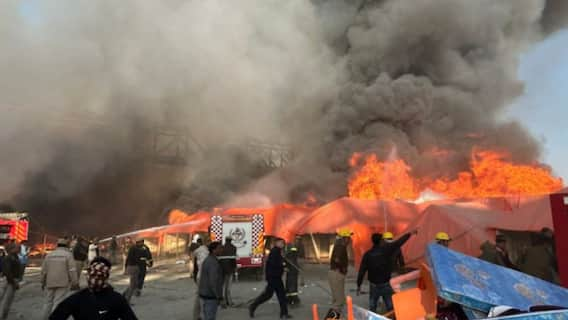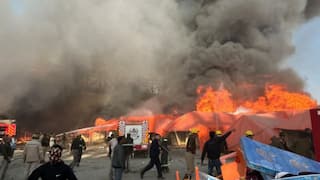Afghanistan: 1 Killed, 26 Wounded After Oil Tanker Catches Fire In Parwan Province
Shamim also mentioned that the fire had been quenched and that the rescue operation was continuing to check if there were any additional victims in the vicinity.

An oil tanker caught fire within a tunnel in Afghanistan's Parwan province, killing one and injuring 26 others, news agency IANS reported.
"The gruesome incident took place inside Salang tunnel around 09:00 p.m. local time Saturday and rescue team has shifted one dead and 26 injured to nearby hospitals," provincial administration spokesman Hekmatullah Shamim informed Xinhua, IANS reported.
#Afghanistan: "The gruesome incident took place inside Salang tunnel around 09:00 p.m. local time and rescue team has shifted one dead and 26 injured to nearby hospitals," provincial administration spokesman Hekmatullah Shamim told Xinhua. pic.twitter.com/jevjIG4KBd
— IANS (@ians_india) December 18, 2022
ALSO READ | Ukraine War: PM Modi's Concerns On Nuclear Weapons Impacted Russian Views, Says CIA Chief
Shamim also mentioned that the fire had been quenched and that the rescue operation was continuing to check if there were any additional victims in the vicinity.
Officials reported the route was now blocked to traffic as rescue personnel in helicopters arrived on the scene.
ALSO READ | INS Mormugao Is One Of The Most Powerful Warships Made In India: Defence Minister Rajnath Singh
The Salang pass, one of the world's highest mountain roadways at roughly 3,650 metres (12,000 feet), was built in the 1950s by Soviet-era professionals and contains a 2.6-kilometer tunnel.
The pass passes across the Hindu Kush mountain range, linking Kabul to the north.
ALSO READ | Northeast Was Known For Violence & Separatism, Now Moving On Path Of Peace: HM Shah In Shillong
The Salang pass, which was hailed as an engineering marvel upon completion, is frequently closed for days throughout the winter due to accidents, severe snowfalls, and avalanches.
Avalanches killed more than 150 people along the Salang pass in 2010.
(With Inputs From IANS)
Trending News
Top Headlines








































